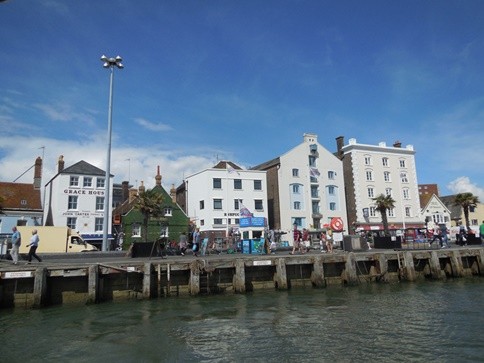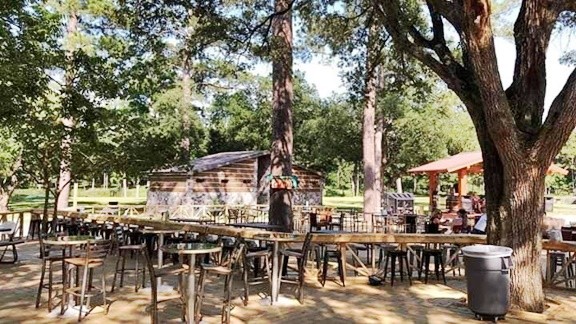Get a Serbian Residence Permit and Citizenship

If you are thinking about relocation, Serbia is an excellent country where you can easily get a residence permit, obtain permanent residence, and finally become a citizen. There is no fast-track Serbian citizenship, so you cannot make investments in the country’s economy and receive a passport quickly. The only way to become a Serbian citizen is a relatively long naturalization path. However, there is one big advantage to a Serbian residence permit: the country is on the verge of joining the EU, so you may get an EU passport when the time for Serbian citizenship comes. If this is something you are dreaming about, read this post to find out more about the conditions.
We would like to invite you to our portal where you can find more information on the Serbian residence permit. Serbia is a very popular country for business and relocation now, and we have a local representative office in Belgrade. Our specialists are ready to help you online and on-site with any matter connected with obtaining a residence permit, buying real estate, setting up a company, opening corporate or personal bank accounts, and more. Follow the above link, book a session, and discuss all the questions with our expert. And welcome to Serbia!
How Can You Obtain a Serbian Residence Permit?
The Serbian passport is becoming stronger and stronger as the number of countries it gives access to without a visa (or with an e-visa/visa upon arrival) is steadily growing.
Beware of scammers when you are searching the Internet for Serbian citizenship. If you see offers of Serbian economic citizenship for 100,000 to 500,000 euros, keep in mind that Serbia does not offer a citizenship-by-investment program. The only way here is the slow one through naturalization. You can quickly obtain a residence permit, not a passport.
You can get an initial residence permit in Serbia for one year, and you are not required to live in the country during this period. You can get a Serbian tax residence in 1 year after you first receive your residence permit. Permanent residence is granted for 5 years. As soon as this period is over, you can obtain your Serbian passport.
There are some exceptions, though. If you are an extraordinary person who has done something good for the country, you can be granted citizenship without delay. If you are a descendant or an emigrant from the Republic of Serbia and you are over 18 years of age, you will also be granted citizenship very quickly and you don’t need to go through the residency procedure.
If you marry a Serbian citizen, you can obtain a permanent residence permit and then apply for citizenship in 3 years.
The standard procedure lasts for 5 to 10 years, depending on the reason for immigration to Serbia.
Let’s look at Serbian taxation and climate.
Taxation System
If you are a Serbian resident, you will be taxed on your worldwide income. If you are a non-resident, you will be taxed on your Serbian income only plus the worldwide income connected with their work in/for the Republic of Serbia. You are considered a tax resident if you live in Serbia for at least 183 days during the fiscal year, you have a business based in Serbia, or you have vital interests in the country.
Here are the tax rates for individuals:
- The salary tax rate is 10%. The first RSD 19,300 is not taxable, so it will be subtracted from the overall amount. The tax base is the gross amount of salary, including any benefits. New employees and students can obtain tax relief on certain conditions.
- The social security contribution amounts to 35% from the average monthly salary.
- If you are self-employed, you will have to pay an income tax of 10%.
- The capital gains tax in Serbia amounts to 15% (this is the tax on income obtained from the sales of real estate, shares, and so on).
- If you receive income from investments in Serbia (savings, deposits, etc.), you will have to pay 10%.
- The maximum property tax rate is 0.4%, and it can be lower.
- The royalty income tax amounts to 20% (however, if you are an eligible copyright holder, you can apply for exclusion of up to 80% from the tax base).
- If the taxpayers support Serbian/foreign dependent family members, they can have personal deductions and allowances of up to 50% of the taxable annual income.
- If your income is more than three times higher than the average annual salary in Serbia, you will need to pay a supplementary annual income tax of 10%. If your income is six times higher than the average annual salary, the rate is 15%.
- The Serbian corporate tax amounts to 10%, and there are many deductions aimed at attracting foreign capital to the country.
- The standard VAT rate is 20%. However, if the company deals with basic goods and services, such as medicines, utilities, public transportation services, and so on, the 10% VAT is applied.
Taxes in Serbia are among the lowest in Europe, so it can even be a tax haven for you if the tax burden in your country is too high.
Climate and Landscapes
If you like a continental climate where winters are cold and summers are warm, Serbia is the country for you. The average temperature is 12°C. The temperature in July is usually about 21°C, while in January it may drop to 0°C. Belgrade is a windy city due to a strong wind that blows from the Carpathian Mountains.
Serbia is a great country for those who love nature as they can enjoy stunning landscapes with rivers and lakes, forested hills, and picturesque canyons. Three fourths of the country’s territory are covered with mountains. Despite all these beautiful sights, there are not so many tourists in the mountains, which is great if you like being in the lap of nature alone.
Conclusion
Set up a business, buy real estate, or get a job offer in Serbia to easily get a residence permit. Don’t know where to start? Book a session with our expert and discuss the opportunities of your relocation. We will be happy to tell you much more about Serbia than this short post contains and find the best solutions for you. Do not hesitate to get in touch with us right now!




